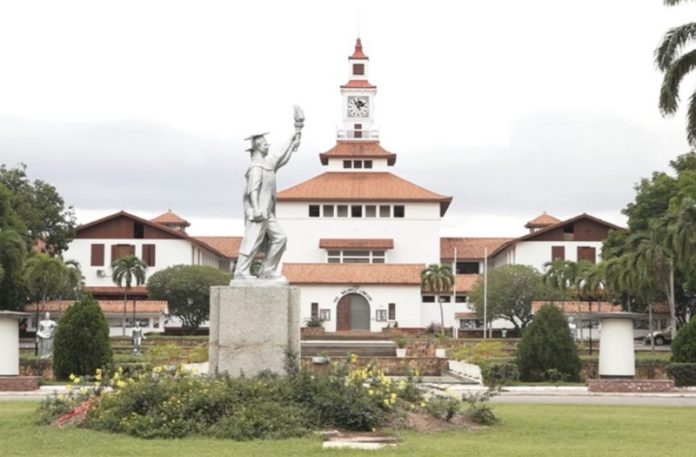A recent surge in COVID-19 cases within the University of Ghana community has been directly linked to the institution’s hall week celebrations, Health Minister Kwabena Mintah Akandoh told Parliament on Tuesday, July 1, 2025.
Addressing the House, the minister identified the festive gatherings as the primary catalyst for the localized outbreak.
Mr. Akandoh assured the public that although COVID-19 is no longer classified as a global health emergency, periodic flare-ups continue to occur, particularly during certain seasons. He confirmed that Ghana’s national disease surveillance system promptly detected the rise in cases at the university, tracing it to a familiar Omicron sub-variant. While highly transmissible, this variant is known to cause mild illness in most cases.
As of July 1, the University of Ghana has reported 316 suspected cases, with 107 confirmed as COVID-19. Crucially, there have been no hospitalizations or deaths associated with the outbreak, and all confirmed cases are reportedly recovering well.
“The recent COVID-19 cases are localised to the University of Ghana community only,” Mr. Akandoh emphasized, crediting Ghana’s robust influenza surveillance system for the early detection. The Noguchi Memorial Institute for Medical Research confirmed the results.
He commended Ghana’s continued vigilance in maintaining COVID-19 monitoring systems, even as many countries have scaled back testing.
Pinpointing the cause of the spike, the minister stated unequivocally: “The most significant factor was the recent Hall Week celebrations held at the University. These events brought large crowds together, with little use of face masks or distancing.”
He also cited a general decline in adherence to basic COVID-19 protocols and difficulties in contact tracing as contributing factors.
In response to the outbreak, a national response team was dispatched to collaborate with university and municipal health authorities. Key officials from the Ghana Health Service, Noguchi Institute, and the School of Public Health convened emergency meetings, and alerts were issued to health facilities nationwide.
The University of Ghana has since suspended all remaining hall week activities and launched a campus-wide education campaign across multiple platforms.
The Ministry of Health is now reinforcing resources at Legon Hospital and the Student Clinic, while preparing the Ghana Infectious Disease Centre to handle potential severe cases.
Other interventions include the provision of additional Personal Protective Equipment (PPE), enhanced training for frontline health workers, improved data tracking, and continued daily testing and monitoring.
“This is not a new virus, and we are not back to 2020,” Mr. Akandoh reassured the public. “This Omicron variant has been with us before. It spreads fast, yes—but it is mostly mild. And we know how to manage it.”
He urged the public to remain calm, cooperative, and compliant with public health guidelines.
While COVID-19 vaccines are no longer part of the national routine immunization schedule, the ministry is working to secure doses for vulnerable populations to help prevent severe disease and death.
Treatment options such as Paxlovid are available for eligible patients, and most mild cases can recover at home.
The minister also noted an uptick in seasonal influenza cases and cholera reports, urging Ghanaians to maintain strict hygiene practices.
On the issue of MPOX, Mr. Akandoh revealed that Ghana has recorded 133 confirmed cases, mainly in the Western, Greater Accra, and Western North regions. There have been no hospital admissions or fatalities, and most patients have fully recovered.
In closing, Mr. Akandoh emphasized collective responsibility and assured Parliament of the ministry’s ongoing commitment to safeguarding public health.
Source: David Apinga
ALSO READ:



